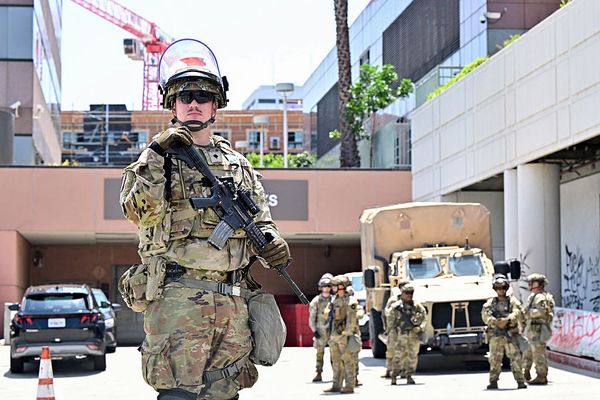
Ukraine’s war-ravaged economy could shrink by up to 35% this year if Russia’s invasion becomes a protracted conflict, the International Monetary Fund has warned.
In an initial assessment, the IMF said the loss of life, damage to critical infrastructure, trade disruption and an outflow of refugees would lead to gross domestic product falling by a minimum of 10% in 2021.
However, it stressed that the experience of other countries affected by recent wars, such as Iraq and Syria, suggested the impact could be much more severe.
The IMF also said the war – which has already led to a sharp rise in energy prices – would cause “devastating” damage to the global economy.
Last week, the IMF announced a $1.4bn package of emergency financial support to help the country cope with the growing financial costs of a war that has resulted in almost half the banks shutting and the central bank struggling to deliver cash to branches and ATMs.
“While geopolitical tensions with Russia had already curtailed Ukraine’s access to markets, the escalation to an invasion of Ukraine by Russia and full-blown war on 24 February has dramatically altered Ukraine’s outlook,” a report prepared by IMF staff said.
“A deep recession and large reconstruction costs are to be expected, on the backdrop of a humanitarian crisis. With the war ongoing, the situation remains extremely fluid, and any forecast is at this stage subject to massive uncertainty.”
The report noted Ukraine faced a “massive” humanitarian shock, with indications of rapidly increasing loss of life and sizeable infrastructure destruction across the country.
Air and seaports had been closed, and substantial damage had been incurred at Mariupol (through which 50% of total exports are shipped) and a majority of the airports. A large number of roads and bridges had been destroyed, further crippling transportation and logistics.
The IMF admitted there was “massive uncertainty” about the economic effects of the war but said instead of forecasting 3.5% growth this year it now expected a deep recession. The prediction of a 10% fall in GDP was based on a prompt end to the fighting and financial help from donor bodies.
“However, the intensity of the ongoing conflict is causing widespread destruction to Ukraine’s productive capacity and rapidly worsening the outlook. Increasing loss of physical capital stock and mass migration would result in a significantly more pronounced output contraction, a collapse in trade flows, further diminished tax collection capacity, and a greater deterioration in the fiscal and external positions.
“Data on wartime real GDP contraction (Iraq, Lebanon, Syria, Yemen) suggests that annual output contraction could eventually be much higher, in the range of 25-35%.”
The previous conflict between Ukraine and Russia, which involved Moscow’s annexation of Crimea, led to Ukraine’s economy shrinking by 6.6% in 2014 and a further 10% in 2015. The IMF believes downside risks are “exceedingly” high and the longer the war goes on the more likely it is that Ukraine will suffer the sort of losses experienced in other conflict-affected countries.
The IMF estimates Russia will also suffer a deep recession and will provide an estimate of the hit to output in its world economic outlook due out next month.
Vladyslav Rashkovan, the IMF’s alternate executive director for Ukraine, said: “The prolongation of Russia’s aggression towards Ukraine, in addition to the humanitarian and economic losses, will also lead to significant spillover effects throughout the world: deterioration of food security, surging of energy and commodity process, rising inflationary pressures, disruption of supply chains, increasing social spending for refugees, and increasing poverty. The global economic damage of this war will be devastating.”







